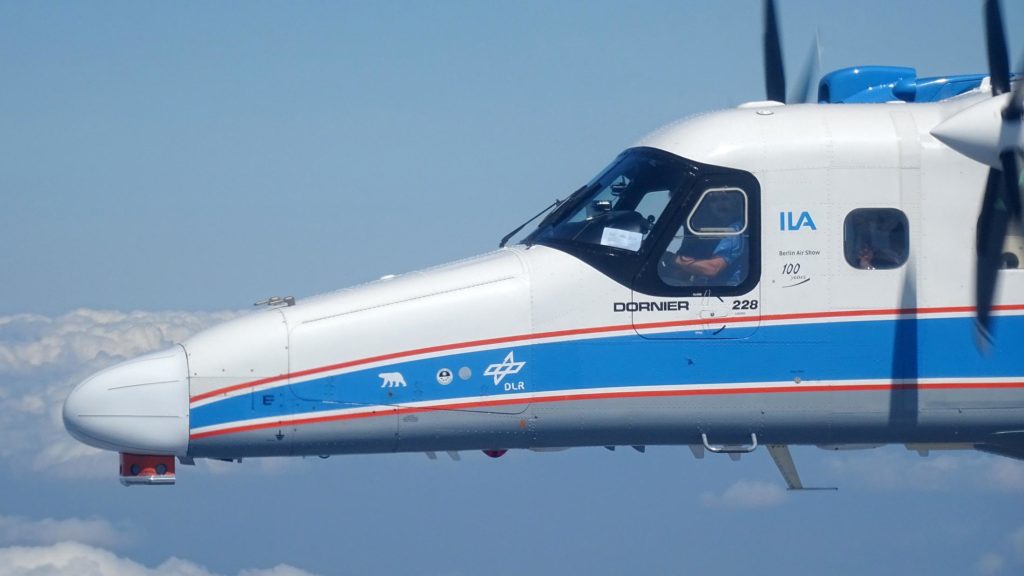National UAS Demonstrator
The Do 228 aircraft is a twin-engine, turbine-powered propeller aircraft with short take-off and landing capabilities, developed as a light transport aircraft. DLR’s Do 228-101 (D-CODE) has extensive modifications, including a digital autopilot, a power supply for experimental installations, a basic measurement system and precision navigation equipment. With little effort, D-CODE can be further modified to accommodate further experiments. The Do 228 is particularly advantageous as it does not have a pressurised fuselage and the geometry of the cabin provides sufficient space for 19-inch racks and to accommodate the engineering teams involved in the experiments.
One of the research focuses for D-CODE in recent years has been the testing of new technologies for the safe operation of Unmanned Aerial Systems (UAS) in controlled civilian airspace. For this purpose, the digital autopilot allows the connection of external experimental flight management systems. A ground station can query various sensors on the aircraft via a data link. In addition, D-CODE can be remotely controlled from the ground station via this link.
On a trial basis and for research purposes, the D-CODE can be equipped in such a way that it can safely avoid another, non-cooperative aircraft automatically. This is made possible by proven avoidance algorithms working together with the experimental flight management system and the digital autopilot all done without intervention by the DLR test pilots on board.
Link:
German Aerospace Center
Flight Experiments
Dr. Burkard Wigger · Email burkard.wigger@dlr.de
